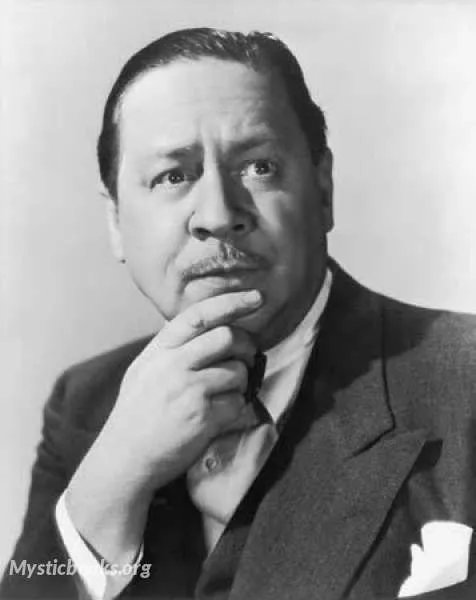
Timeline
Title
Country/Nationality
Robert Benchley
Robert Charles Benchley was an American humorist best known for his work as a newspaper columnist and film actor. From his beginnings at The Harvard Lampoon while attending Harvard University, through his many years writing essays and articles for Vanity Fair and The New Yorker and his acclaimed short films, Benchley's style of humor brought him respect and success during his life, from his peers at the Algonquin Round Table in New York City to contemporaries in the burgeoning film industry.
Benchley is best remembered for his contributions to The New Yorker, where his essays, whether topical or absurdist, influenced many modern humorists. He also made a name for himself in Hollywood, when his short film How to Sleep was a popular success and won Best Short Subject at the 1935 Academy Awards. He also made many memorable appearances acting in films such as Alfred Hitchcock's Foreign Correspondent (1940) and Nice Girl? (1941). His legacy includes written work and numerous short film appearances.
Robert Benchley was born on September 15, 1889, in Worcester, Massachusetts, the second son of Maria Jane (Moran) and Charles Henry Benchley. His father served in the Union army for two years during the Civil War and had a four-year hitch in the Navy before settling again in Worcester, marrying and working as a town clerk.
Robert Benchley met Gertrude Darling in high school in Worcester. They became engaged during his senior year at Harvard University, and they married in June 1914.
Robert grew up and attended South High School in Worcester and was involved in academic and traveling theatrical productions during high school.
Benchley enrolled at Harvard University in 1908, again with Duryea's financial help. He joined the Delta Upsilon fraternity in his first year, and continued to partake in the camaraderie that he had enjoyed at Phillips Exeter while still doing well in school.
During his first two years at Harvard, Benchley worked with the Harvard Advocate and the Harvard Lampoon. He was elected to the Lampoon's board of directors in his third year.
While Benchley's books and Paramount contract were giving him financial security, he was still unhappy with the turn his career had taken. By 1944 he was taking thankless roles in the studio's least distinguished films, like the rustic musical National Barn Dance. By this time Robert Benchley's screen image was established as a comic lecturer who tried but failed to clarify any given topic. In this capacity Paramount cast him in the 1945 Bob Hope-Bing Crosby comedy Road to Utopia; Benchley interrupts the action periodically to "explain" the nonsensical storyline. On April 22, 1945, he guest starred on the Blue Network's (soon to be ABC) top-rated radio series The Andrews Sisters Show, sponsored by Nash motor cars & Kelvinator home appliances.
Benchley's drinking, already a problem, worsened and he was diagnosed with cirrhosis of the liver. (Ironically, when younger, he had been an adamant teetotaler.) While he completed his year's work, his condition continued to deteriorate, and Benchley died in a New York hospital on November 21, 1945. His family opted for a private funeral service, and his body was cremated and interred in a family plot on the island of Nantucket.
In 1960, Benchley was posthumously inducted into the Hollywood Walk of Fame with a motion pictures star located at 1724 Vine Street.
Books by Robert Benchley

Love Conquers All
Love Conquers All is a collection of short pieces which were published in various newspapers and journals like the The New York Tribune, Life, The New York World and several other consolidated press agencies. Benchley's tongue-in-cheek humor and his...